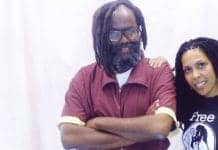by Ann Garrison

What will Democrats do when they can’t campaign as the “least-worst” option, then shame and blame anyone who dares to vote Green? Greens are running against incumbent Democrats in three California congressional races with no Republican bogeymen in sight. The names of all three Greens will appear right alongside the Democrats’ names on the November ballot, so voters will readily see that they have a choice besides writing in their cat, their cousin, a Green, or some other marginalized candidate.
In Districts 13, 34 and 40, there’ll be no Republicans, no least-worst Democrats, and no excuse for shame and blame. In these races, Democrats have to make their case on its own merits instead of arguing that Green voters risk electing a Republican and should therefore suffer eternal damnation. The argument that anyone to the left of Donald Trump owes their vote to a Democrat, no matter how despicable, has always been stupid and arrogant, but in these races it’s not even relevant.
Want Medicare-for-All? Free public college tuition and the cancellation of student debt? Sustainable energy and agriculture? Economic human rights? The end of homelessness, gentrification, mass incarceration and police and border militarization? Want to stop the wars, close the empire of bases, radically cut the military budget, and repurpose resources to meet human needs and build sustainable infrastructure?
Want to live in a world where everyone has dignity and purpose, and society respects and protects the life of every individual? No problem if that’s what you’d like to say with your vote in November and you live in the Golden State’s Districts 13, 34 or 40.
What will Democrats do when they can’t campaign as the “least-worst” option, then shame and blame anyone who dares to vote Green?
There’s no need to vote for the least of what you want or against the worst of what you fear. You can vote your conscience by voting Green – for Laura Wells in D13, Kenneth Mejia in D34, or Rodolfo Cortes Barragan in D40.
California Districts 13, 34 and 40 are so solidly Democratic that no Republicans bothered to pay the $1,740 filing fee or gather the 2,000 signatures required to put their name on the ballot. Green candidate Laura Wells advanced to the general election by handily winning the write-in vote against Republican, Libertarian and American Independent write-in candidates.
There’s no need to vote for the least of what you want or against the worst of what you fear. You can vote your conscience by voting Green – for Laura Wells in D13, Kenneth Mejia in D34, or Rodolfo Cortes Barragan in D40.
Green v. Democrat races can emerge only in districts that are so Democratic that Republicans don’t bother to run, or in the solidly Democratic states of California and Washington, both of which have top-two primaries.
Since only two states have top-two primaries, aka jungle primaries, I should probably try to explain them. Any number of candidates from any one party can compete in a top-two primary, as can any number of independent candidates with no party preference.
However, only the names of the top two vote-getters – regardless of party affiliation – will appear on the ballots in November’s general election. They could be two Republicans, two Greens, two Libertarians or two Independents, but in solid blue California and Washington, they’re most likely to be two Democrats, as in the Senate race between Democratic incumbent Dianne Feinstein and Democratic challenger Kevin De León.
Any number of candidates from any one party can compete in a top-two primary, as can any number of independent candidates with no party preference.
Nebraska also has a top-two primary, but only for its non-partisan state races. And I’d lose anyone still reading this if I tried to explain Louisiana’s voting system – which isn’t top-two but has similar consequence – especially since I don’t fully understand it myself. The U.S.’s crazy-quilt of electoral systems, rules and regulations makes it maddening to even try to talk about our elections without getting lost in the details.
That’s one of several reasons BAR Managing Editor Bruce Dixon and others advocate a Right-to-Vote Amendment to the U.S. Constitution that would establish a nationally uniform standard of who could register and how, along with standards for how voting machines are procured, allocated and operated, and how votes are counted. (Another is that a nationally uniform electoral system would make the Voting Rights Act easier to enforce and voter suppression more difficult to devise.)
So how will the incumbent Democrats in these three congressional districts campaign? They are Barbara Lee, who faces Laura Wells in California D13, Jimmy Gomez, who faces Kenneth Mejia in D34, and Lucille Roybal-Allard, who faces Rodolfo Cortes Barragan in D40. Most likely they’ll refuse to debate or even acknowledge the existence of their Green challengers, though I still hope for better from Barbara Lee.
BAR Managing Editor Bruce Dixon and others advocate a Right-to-Vote Amendment to the U.S. Constitution that would establish a nationally uniform standard of who could register and how, along with standards for how voting machines are procured, allocated and operated, and how votes are counted.
They have nothing to gain by admitting that they’re beholden to the oligarchical and corporate interests who fund their campaigns, that they don’t support much of the Green Party platform, or that there’s plenty of money to pay for it. If asked where they’ll find the money, any of the Green candidates will readily point out that a 50% cut to the military budget could pay for everything they advocate, provide a basic income to every American, and fully employ all those now employed by the Masters of War.
Ann Garrison is an independent journalist based in the San Francisco Bay Area. In 2014, she received the Victoire Ingabire Umuhoza Democracy and Peace Prize for her reporting on conflict in the African Great Lakes region. She can be reached at ann@kpfa.org.

 Store
Store












